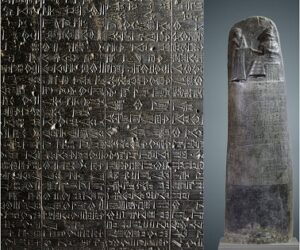This is Faith in Play #85: Codes, for December 2024.
In any village, any city, any region, any world, characters are constrained. They are, of course, constrained by the local law. I have written extensively about that elsewhere, particularly in The Source of Law, The Course of Law, and The Force of Law. That, though, is an external constraint. I’m here interested in what might be termed an internal constraint, the personal codes by which character actions are limited. Some are religious, but some are not, and they are often just as constricting.

Obviously there is significant overlap, and much of that is due to what philosophers term the moral law, that seemingly instinctual notion of right and wrong which to one degree or another everyone in the world shares. But our codes go beyond don’t kill or steal or dishonor your parents, and some of the restrictions at times seem peculiar.
There are dietary limitations, of course. Muslims cannot eat pork or drink alcohol. Jews have complicated lists of what they can and cannot eat, barring most mammals that are not simple herbivores, all seafood that is not scaly fish, any non-mammalian land-based animal, and numerous birds. Some eastern religions bar eating any meat, fish, or poultry at all.
There are other restrictions in such codes as well, such as whom you can marry, and sometimes with whom you can associate.
Beyond that, there are professional codes, rules you are expected to follow if you are a craftsman or a tradesman or a shipper. There are codes of honor adopted by knights and noblemen, and these differ from country to country, order to order. Some of these are as ridiculous as what weapons you are permitted to use in battle, what products you are permitted to produce and sell and transport. In some cultures, even thieves and assassins have codes they are expected to follow. In modern times lawyers have codes of ethics, and can be punished, even disbarred, for violating them. Doctors similarly have rules they are expected to follow, and of course ministers, priests, and rabbis are all scrutinized despite the lack of unified oversight.
These restrictions all have a degree of being dictated by someone else, but that’s not always the case. Individuals frequently devise their own rules regulating their own conduct, and often expect others to act similarly. A married soldier of my acquaintance had no qualms about sleeping with any girl he could seduce, with the limitation that you did not seduce the wife of a close friend. He was livid when his own wife slept with his best friend; that was a violation of his code.
The personal codes of individual characters within the fictional world add significantly to the nature of play and the personalities of those characters. This applies to the myriad of non-player characters, from the barman who does not allow gambling in his establishment to the nobleman who expects anyone seeking audience with him to be appropriately attired to the stablehand who won’t take responsibility for a horse that has been mistreated. It also obviously applies to the player characters, who are going to have some of these restrictions dictated by their character design but others adopted as part of character development.
It brings the exploration of the moral and ethical into the shared imagined space, and in so doing opens questions about religion and faith.
